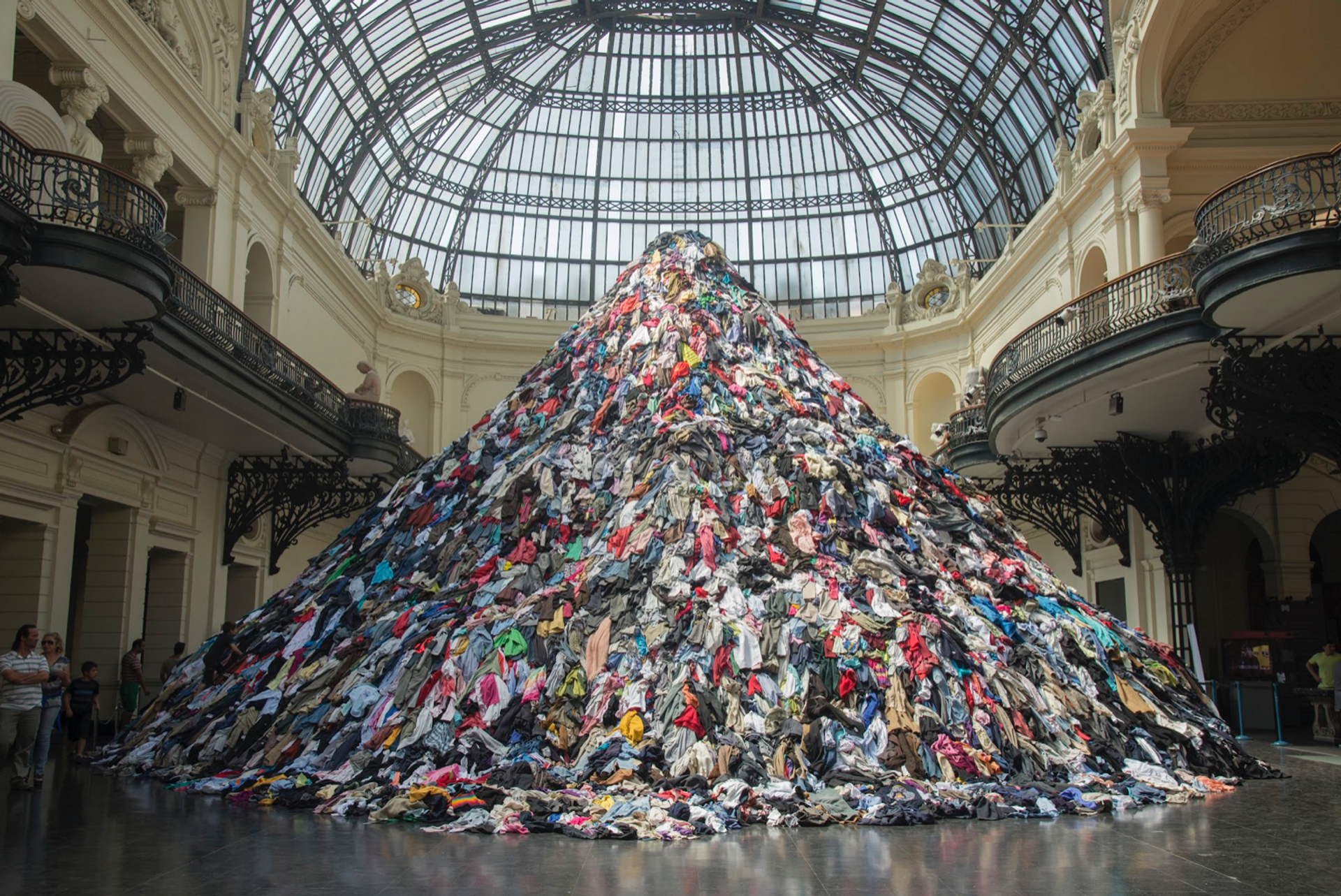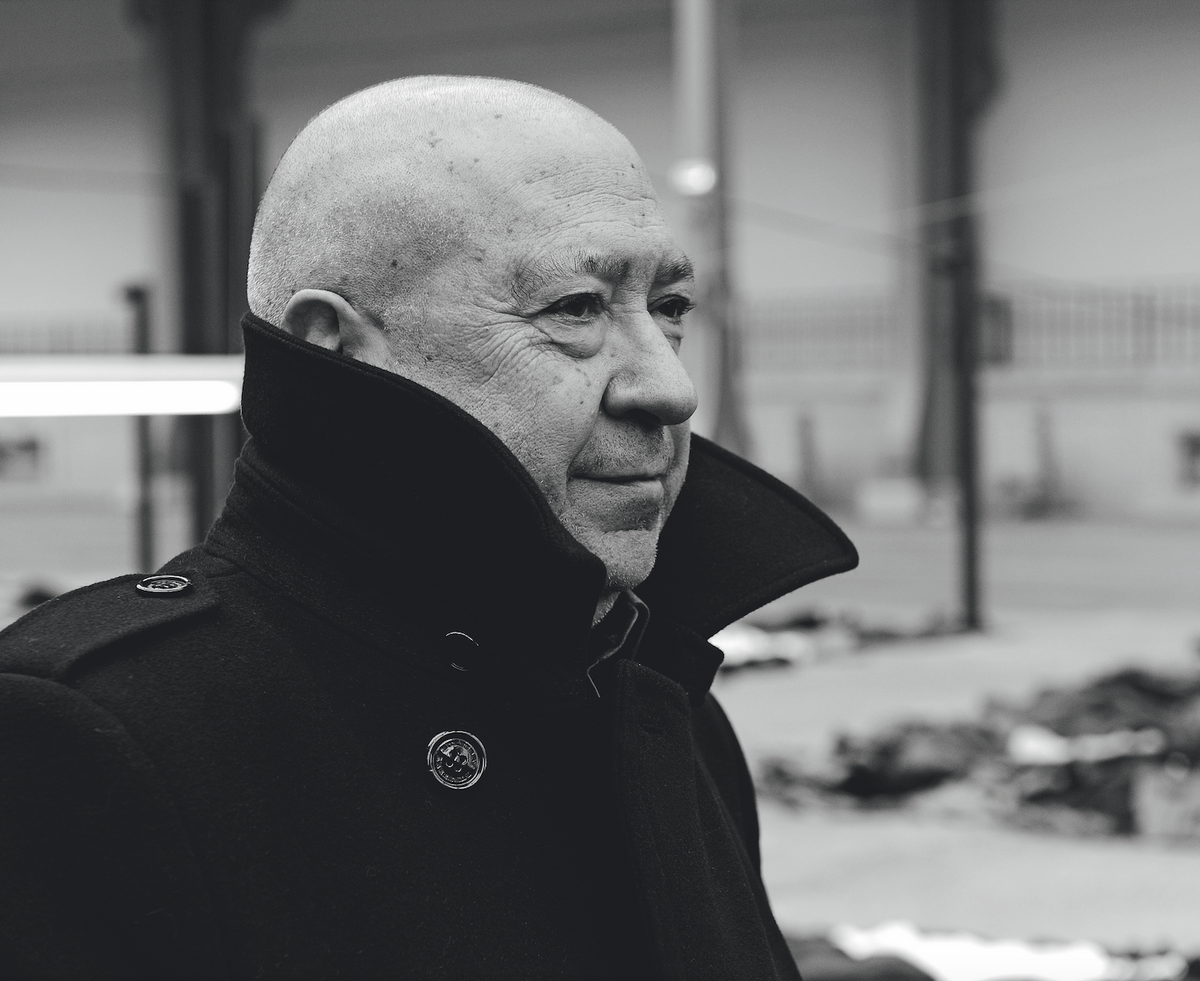The first-ever solo exhibition in Russia of the late French artist Christian Boltanski has been postponed indefinitely following Russia’s invasion of Ukraine. Titled Esprits, it was scheduled to open on 14 March at the Manege Central Exhibition Hall in St Petersburg, but Boltanksi's heirs have decided to pull the show and his works are being shipped back to France.
Boltanski, who died in July last year, was descended from Jewish immigrants from Odessa—Ukraine's third-largest city which is situated on the Black Sea; it is now preparing for imminent attack by Russian forces.
“Christian would not have accepted presenting this exhibition in this context,” said his estate representatives in a statement shared by the Manege. “Attached to his roots, he would have been affected by this conflict that concerns his history. To exhibit in a country that is militarily invading his father’s homeland would be contradictory to his thinking, his philosophy and his works.”

Personnes (Persons/Nobodies), was due to go on show at Boltanski's Manege exhibition. Shown here in 2014 at Almas, Museo Nacional de Bellas Artes, Santiago, Chile. © Christian Boltanski, ADAGP, Paris, 2021 Courtesy: Museo Nacional de Bellas Artes, Santiago, Chile © Photo credits: Jorge Brantmayer
The exhibition was to include Boltanski’s works from the past 15 years, including large installations, videos and sculptures. These were to join more recent works inspired by Russian history, in particular Bloody Sunday: the 1905 worker’s uprising precipitated by the Russo-Japanese war, which ultimately led to the 1917 Bolshevik Revolution.
“According to his notes, he was thinking about souls of insurgent workers wandering around the Manege space, waiting to be dispatched to heaven or hell,” said an exhibition press release from January.
Russian museums increasingly isolated
The indefinite postponement of Esprits is the latest in a slew of exhibitions organised in collaboration with Western institutions in Russia to be pulled.
The Kremlin Museums were recently forced to cancel a major exhibition on duelling, scheduled to open last week. Even as relations with the West deteriorated in recent years, the Kremlin Museums have concentrated on staging exhibitions with loans from foreign institutions. A dozen European museums, including the Louvre, Prado and the UK Royal Collection had planned to send works to the Kremlin for the show.
A spokeswoman for the Kremlin Museums told The Art Newspaper that “things are changing so quickly that we are not ready to comment now” and expressed hope for “good news” in the future.
In the past fortnight, the Hermitage Amsterdam and the Hermitage UK Foundation have both broken ties with the Russian museum and the Amsterdam exhibition Russian Avant-Garde: Revolution in the Arts closed ahead of schedule. The State Hermitage website described it as a joint decision due to “the unprecedented degree of pressure that our colleagues in the Hermitage–Amsterdam Exhibition Centre have encountered in the current political situation.”
Marina Loshak, the director of the Pushkin State Museum of Fine Arts in Moscow, whose daughter and nephew are opposition journalists, told Interfax last week that the exhibition The Cauldron of the Alchemist, scheduled to open on 15 March, was postponed as “foreign artists are not able to provide works for exhibition at this time.”
She said the exhibition, about the philosophical and metaphysical understanding of vision and blindness “is as timely as ever” and that work on it will continue with foreign partners. As of now, international museums have not cancelled their joint projects with the Pushkin. “We continue to receive a huge number of letters of support from our foreign colleagues in this difficult period for Russian culture.”


